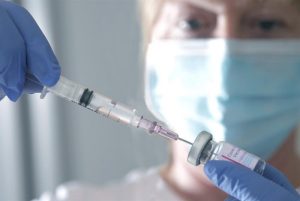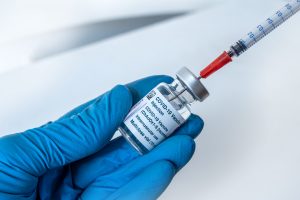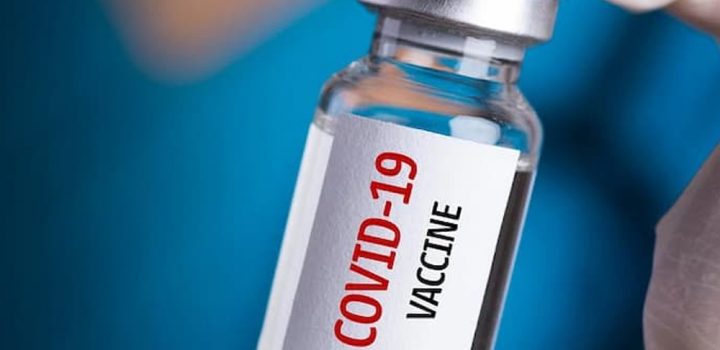As more COVID-19 vaccines continue to be rolled out and more people get vaccinated, the world looks forward to normalcy again. And given the long wait toward the first COVID-19 vaccine breakthrough that was muddled with lockdowns and quarantines, we have cause to celebrate.
For some, that could mean reuniting with friends and family over a sizable hot steaming dinner. But for others, it could mean having a few laughs over a few alcoholic drinks. And as the drink tantalizingly fizzes over, the last thing on anyone’s mind is how alcohol will affect your COVID- vaccine.
Which brings up the question: will alcohol affect your COVID vaccine?
The Influence of Alcohol on the COVID-19 Vaccine
 It’s only natural to want to toast to your newfound immunity against the dreaded COVID-19. It’s only natural to stop and consider how alcohol can affect your vaccine and immunity overall. So, the short answer to the previous question is: it all depends on how much you drink.
It’s only natural to want to toast to your newfound immunity against the dreaded COVID-19. It’s only natural to stop and consider how alcohol can affect your vaccine and immunity overall. So, the short answer to the previous question is: it all depends on how much you drink.
That’s right: you can go ahead and celebrate, but how much is too much? Well, let’s start by highlighting that the vaccine’s main job is to strengthen our immunity against the COVID-19 virus. And alcohol has long been known as one of the many culprits that work to weaken our immune systems considerably.
Alcohol and How It Affects Our Immunity
According to a Yale Medicine addiction medicine specialist known as Dr E. Jennifer Edelman, alcohol targets cells of the immune system. The body can no longer defend itself from pathogens and viruses by attacking and destroying these cells, including COVID-19.
And if essential organs such as the lungs cannot get rid of pathogens, the individual is likely to develop respiratory problems. This is why you often hear severe drinkers suffering from pneumonia, hepatitis and other diseases like certain types of cancers.
But the key takeaway here is that too much alcohol consumption damages the immune cells of your body. This presents a problem if the person is struggling with addiction and cannot control their daily intake. Again, a weakened immunity means little to no protection against the COVID-19 virus.
Chronic Alcohol Consumption and Its Effect on The Body
 Too much alcohol consumption doesn’t only kill the immune cells; it causes inflammation in the intestines. Hence, the various intestinal problems a person with alcohol use disorder usually experiences. Too much alcohol in the system goes a step further by crippling the body’s ability to regulate inflammation as well.
Too much alcohol consumption doesn’t only kill the immune cells; it causes inflammation in the intestines. Hence, the various intestinal problems a person with alcohol use disorder usually experiences. Too much alcohol in the system goes a step further by crippling the body’s ability to regulate inflammation as well.
And where there is chronic inflammation, there’s a host of severe diseases, including Crohn’s disease, asthma, periodontitis and ulcers. And since regular drinkers have a weakened immune system and inflamed respiratory tract, their ability to heal and recover is excruciatingly slow. This means that any contact with the virus could mean severe consequences for them.
But if the key is to avoid chronic drinking, does this mean that one can still drink alcohol? Yes, it does, and as previously mentioned, it all depends on how much alcohol you consume.
Is Reasonable Alcohol Consumption Beneficial?
If you occasionally enjoy a drink or two of alcohol sporadically, you have little to worry about. Even drinking one to two glasses a day, depending on your gender, is considered moderate. That is, women should try to stick to one drink and men to two drinks a day. But why is this considered okay?
Here’s where it gets interesting: alcohol can reduce inflammation in the body. Whereas too much can weaken the immune system, just enough alcohol in the body can fight off inflammation. The Arthritis Foundation puts it more precisely by stating that it reduces the biomarkers that cause inflammation.
Biomarkers include TNF-alpha receptor two and the c-reactive protein (CRP), to name a few. And if we take a step back, inflammation has been linked to diseases such as arthritis, diabetes, Alzheimer’s and cardiovascular diseases. And we’ve been able to see that too much alcohol can do this.
But by consuming alcohol moderately, you can protect your body from getting the diseases mentioned above. But this also means that when it comes to alcohol drinking, you’re towing a fine line between moderate and chronic consumption. An infectious disease doctor known as Amesh Adalja says it better.
According to her, if you stick to a small amount daily, you can benefit from it. But if you go overboard and drink more than the recommended amount, you lose that balance. This means that you may be exposing your body to the risks rather than the benefits of alcohol. The key is to stick to the recommended one to two alcoholic drinks daily.
Can I Drink Before And/ Or After Vaccination?
 Another primary concern is if one has to wait a while before and after they are vaccinated to take alcohol. No; they don’t. You can drink some alcohol the night before and/or after getting the vaccine, as long as you stick to the recommended intake per day.
Another primary concern is if one has to wait a while before and after they are vaccinated to take alcohol. No; they don’t. You can drink some alcohol the night before and/or after getting the vaccine, as long as you stick to the recommended intake per day.
But, going overboard may put you at risk by lowering your immunity. If you know you’ll have difficulty limiting your drinks, then it’s best to stay away from it entirely before vaccination. You can always have a friend along to help keep you accountable.
In conclusion, alcohol consumption doesn’t necessarily affect the vaccine. Severe alcohol consumption does, by weakening the immune’s response and the body as well. A weakened immunity gives the body very little chance to fight the virus at all.
Mild or moderate consumption of alcohol is advised, if at all. This way, you can benefit by having a small amount of alcohol, improving the immune’s ability to combat inflammation. There’s a balance that needs to be maintained to benefit from alcohol consumption. The balance that many should strive to keep by sticking to the recommended intake.
If you can’t trust yourself to limit your daily drinks, it’s best to avoid it altogether. If you struggle with alcohol use disorder, it would be best to seek professional help to help keep you safe and improve your health.



